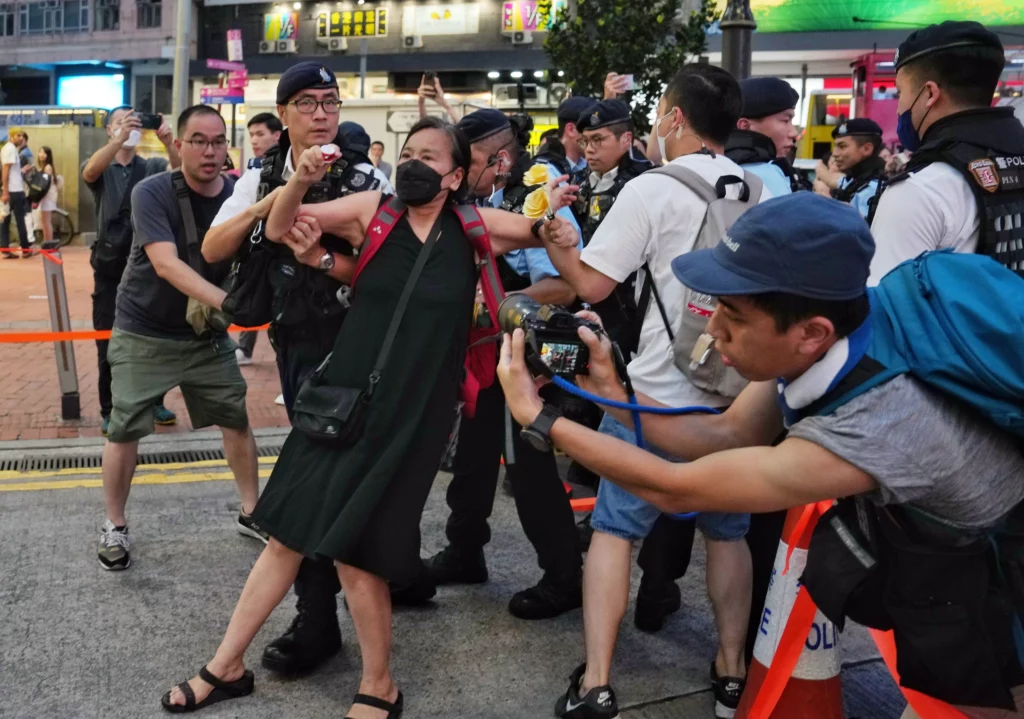On the solemn anniversary of the Tiananmen Square massacre, Hong Kong witnessed a significant crackdown on dissent as 23 individuals were arrested by local authorities. The arrests have raised concerns about the erosion of civil liberties and the stifling of freedom of expression in the semi-autonomous region.
The Tiananmen Square crackdown, which occurred on June 4, 1989, remains a highly sensitive and censored topic in mainland China. Thousands of pro-democracy protesters were killed or injured when the Chinese government deployed armed forces to quell the demonstrations in Beijing. Hong Kong, with its historical ties to the event, has traditionally been a place where citizens could gather to commemorate the tragic incident and express their dissent against authoritarianism.
However, this year’s anniversary saw a heightened security presence in Hong Kong’s Victoria Park, the traditional site of the annual vigil. Authorities raised concerns over public safety and COVID-19 restrictions, effectively banning the vigil for the second consecutive year. Despite the prohibition, a small group of activists defiantly gathered to mark the anniversary and pay their respects to the victims of the Tiananmen Square massacre.
In response, Hong Kong police swiftly moved in and made 23 arrests, citing unauthorized assembly and potential violations of the controversial National Security Law imposed by Beijing in 2020. Among those detained were prominent activists, including former lawmakers, student leaders, and vocal critics of the government’s policies. The arrests have been widely condemned by human rights organizations and democratic nations as a further infringement on Hong Kong’s promised autonomy and freedom of speech.
Critics argue that the arrests reflect a growing trend of curbing dissent and stifling political opposition in Hong Kong. Since the implementation of the National Security Law, which grants authorities expansive powers to target activities deemed subversive or secessionist, the space for free expression and democratic activism has significantly diminished. The latest arrests serve as a stark reminder of the shrinking democratic space in the region and the increasing influence of mainland China on Hong Kong’s affairs.
International voices of concern have emerged, with democratic governments and human rights organizations calling for the release of the detained individuals and the preservation of Hong Kong’s autonomy. The United States, European Union, and various advocacy groups have condemned the arrests, viewing them as a violation of the Sino-British Joint Declaration, the agreement that guaranteed Hong Kong’s freedoms and autonomy until 2047.
In response to the criticism, Hong Kong authorities defended the arrests, emphasizing their commitment to upholding the rule of law and maintaining social stability. They argued that the arrests were necessary to preserve public order and prevent activities that could endanger national security.
As Hong Kong grapples with these recent developments, the arrests on the anniversary of the Tiananmen Square massacre have become emblematic of the broader struggle for democratic rights and freedoms in the region. The international community will be closely watching how the situation unfolds and the impact it may have on Hong Kong’s unique status and the rights of its citizens.
